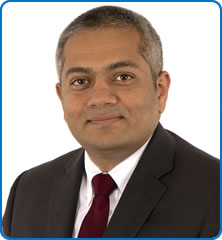Current Research
NEUROSAFE PROOF: investigating the NeuroSAFE technique for nerve sparing in radical prostatectomy.
About the Project
Radical prostatectomy is a complex surgical procedure to remove the prostate because of cancer. In this procedure damage to the nerves which run in the outer coverings of the prostate commonly causes erectile dysfunction (usually permanent) and urinary incontinence (usually temporary). NeuroSAFE is a technique developed in Germany to promote safe nerve sparing. This technique involves, during the operation, an examination of the prostate under a microscope by a pathologist to see whether prostate cancer is near the nerves surrounding the prostate. If it is not, the nerve is left in place. If it is, the cancer cells are removed. We plan to evaluate whether using NeuroSAFE is effective. This trial will evaluate whether men are prepared to be randomised between treatment groups, to see whether we can teach the procedure to a level of competence that randomisation is possible at other NHS centres. The ultimate objective will be to evaluate, through a large scale multicentre randomised controlled study, the effects of use of the NeuroSAFE procedure in terms of potency, urinary continence, quality of life as well as cancer control and the need for extra treatment with radiotherapy.
PRIMUS: Development and validation of a diagnostic and decision-making aid for the treatment of men with bothersome lower urinary tract symptoms.
About the Project
Many men, as they get older, experience problems passing urine. They may need to pass urine more frequently than usual, find their sleep interrupted by having to go to the toilet during the night, notice a change in their flow rate when they urinate or may experience loss of bladder control. These problems are grouped into what we call Lower Urinary Tract Symptoms (LUTS). These symptoms can be unpleasant, can impact on work and social life, and may prompt a visit to a GP for consideration of treatment. In one of our first joint collaborations between primary and secondary care, the aim of the PriMUS study is to create a decision aid to help GPs find the most likely cause of patients’ urinary symptoms, so that together they can choose the best treatment. We believe that this will have many benefits such as getting the right treatment sooner, avoiding unnecessary hospital visits, and getting those who need to be seen by a specialist there more quickly.
PROTEUS: Investigating the effect of Apalutamide in conjunction with androgen deprivation therapy (also known as ADT or Hormone Therapy) on results of radical prostatectomy surgery and time taken for prostate cancer to progress, in men with locally advanced prostate cancer.
About the Project
The purpose of this study is to see if Apalutamide either used alone or combined in tablet with abiraterone acetate and prednisone, plus androgen deprivation therapy (also known as hormone therapy/ADT), is safe and could improve the results of surgery and delay the time it takes for prostate cancer to spread to other parts of the body in patients with localised and locally advanced high-risk prostate cancer who are planned for radical prostatectomy (RP). All participants in this study will get Androgen Deprivation Therapy (ADT) prior and after the RP surgery. This treatment is not considered standard of care which means that it is a therapy that you normally would not receive outside of a clinical trial and it has not been proven to benefit patients. In this study, ADT is a gonadotropin releasing hormone (GnRH) agonists. GnRH agonists are drugs that lower the production of androgens (male hormones) in your body. Prostate cancer cells usually require androgens, such as testosterone, to grow. You will be randomised into one of two treatment groups, both receiving ADT but only one receiving the study drug apalutamide.
PURSUIT: A randomised, controlled trial to compare endoscopic and surgical management of recurrent stress urinary incontinence in women.
About the Project
We do not know whether endoscopic bulking injections or surgery is the best treatment for recurrent SUI in women who have had an operation for it already. The PURSUIT study aims to find out which treatment is better for improving women’s symptoms and quality of life. We will look at side effects of each treatment for three years post-procedure.
Trials in follow up
POUT: Comparing peri-operative chemotherapy and surveillance in upper tract urothelial cancer.
RADICALS: Evaluating radiotherapy and androgen deprivation in combination after local surgery.
SORCE: Comparing Sorafenib with placebo in patients with resected primary renal cell carcinoma at high or intermediate risk of relapse.
PURE: Evaluating clinical effectiveness of surgical interventions or stones in the lower pole of the kidney: percutaneous nephrolithotomy, flexible ureterorenoscopy and lithotripsy.
ADD-ASPIRIN: assessing the effects of aspirin on disease recurrence and survival after primary therapy in common non-metastatic cancers.
UKGCPS: Identifying genes which suggest a predisposition to prostate cancer developing.



